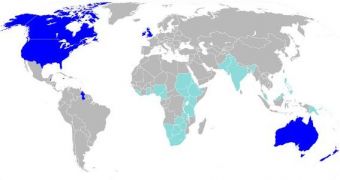Of the estimated 6,000 languages spoken on Earth today, one disappears about two weeks. About 3,000 of them are at risk of going extinct, or are already in the final stages of disappearing. This state of fact made some experts consider whether the same could happen to the English language one day.
In many respects, English is now the enemy of most other languages, especially little-used ones, since it is the preferred language of globalization. This ensures it is spread far and wide, by both the United Kingdom (its place of origin) and the United States (currently its main driving force).
In the future, experts at the University of Cambridge believe, there will be no universal language, fulfilling the function that English currently does. Chinese and Indian will emerge as other primary languages, but they will not merge with English.
We could therefore expect to see a multilingual world, in which technology will enable fast and fluent communications, essentially eliminating the need for people to learn other languages.tt

 14 DAY TRIAL //
14 DAY TRIAL // 